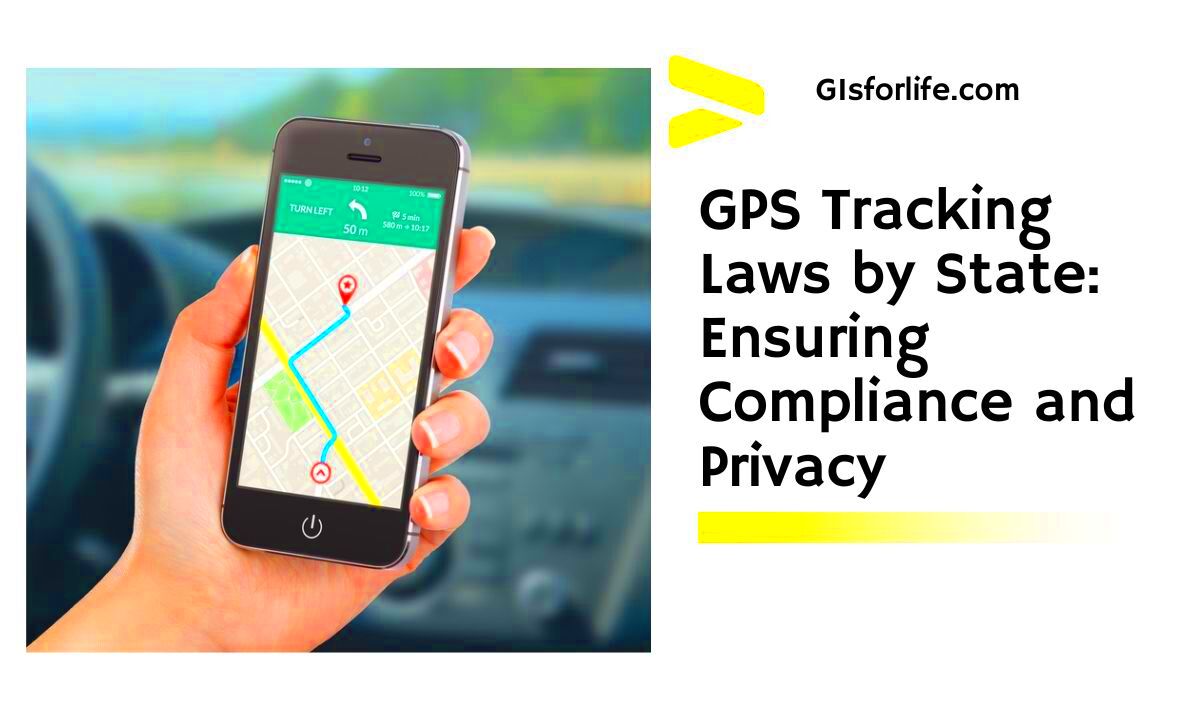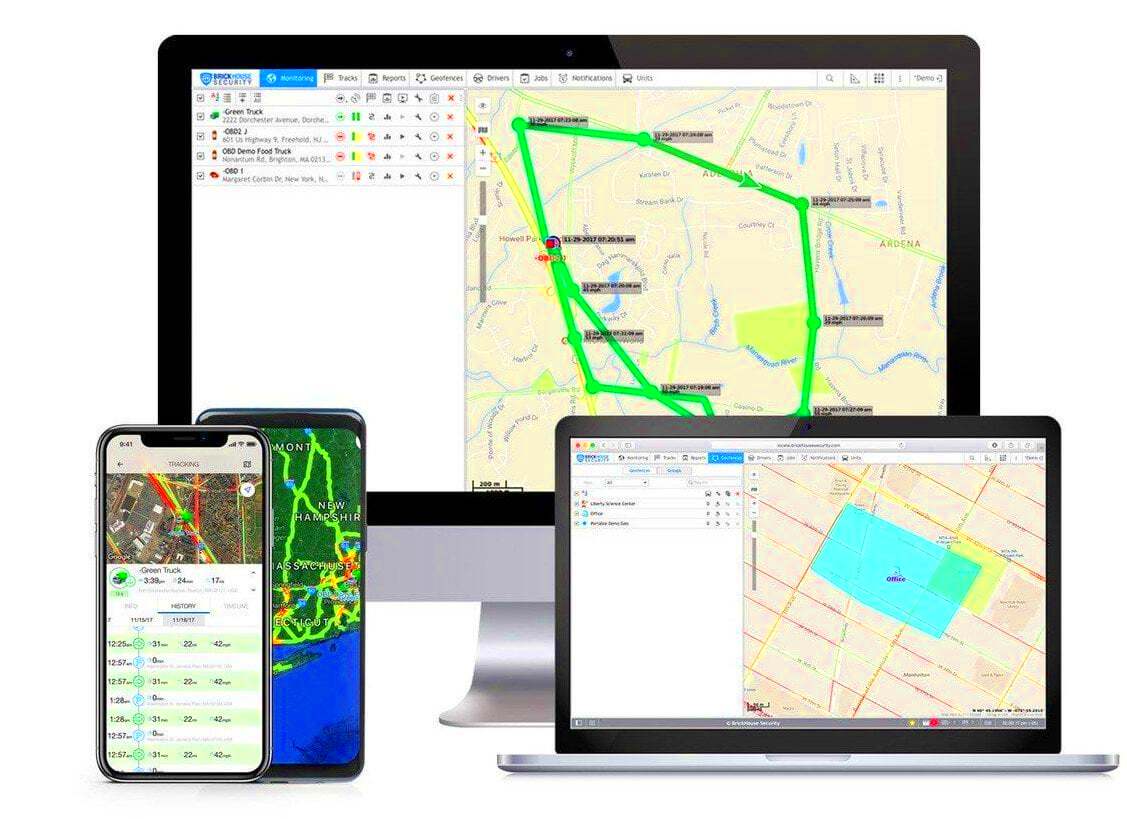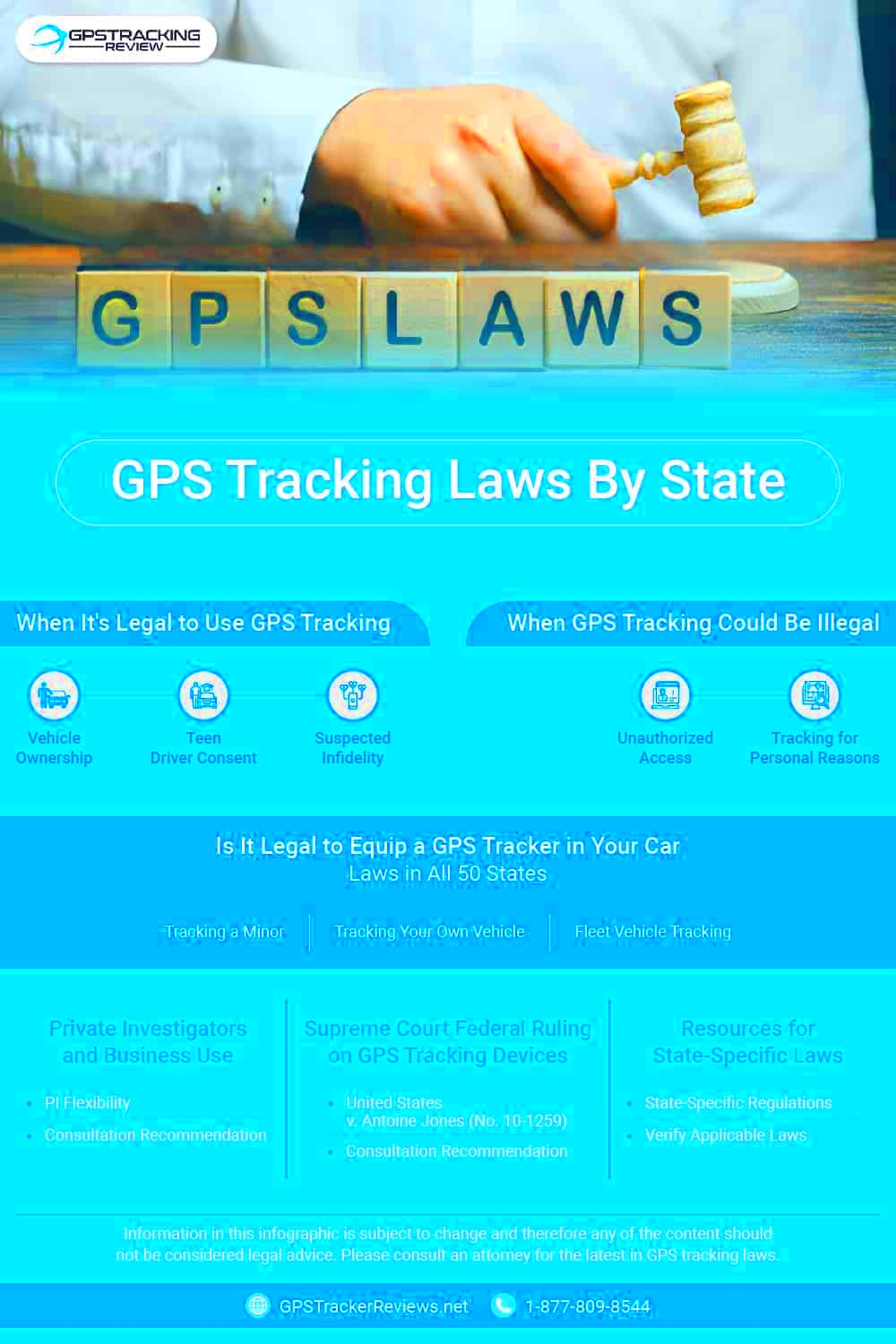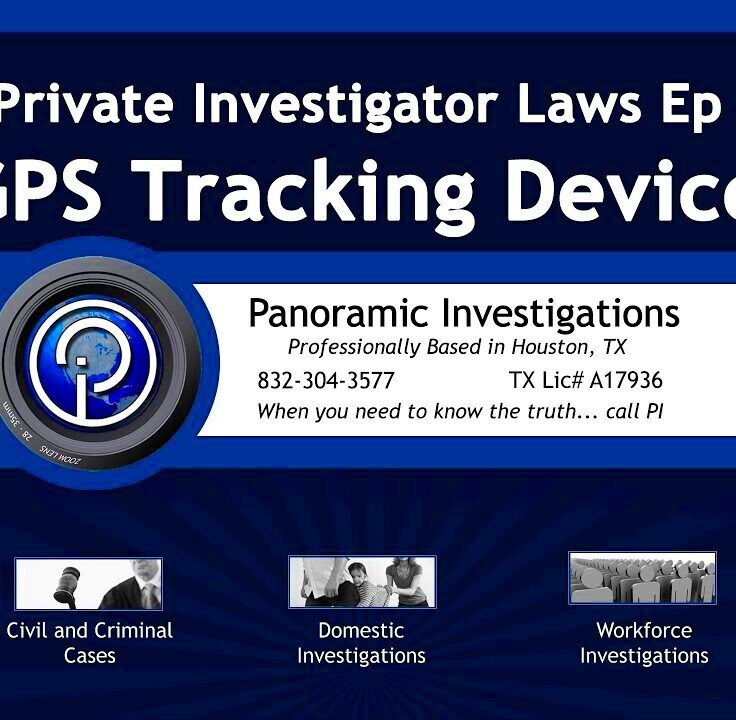Understanding Texas GPS Tracking Laws
In Texas the rules around GPS tracking aim to strike a balance between the advantages of technology and the importance of safeguarding individual privacy. As technology advances so do the regulations that oversee its use. GPS tracking is becoming more prevalent for both personal and professional purposes but it brings up important legal and moral dilemmas. Familiarizing yourself with these laws is essential, to prevent potential legal complications and to ensure responsible use of GPS technology.
Texas has rules in place regarding GPS tracking to prevent abuse. These regulations cover aspects like who can track whom, the situations in which tracking is allowed and the permissions needed. The goal is to protect privacy while still permitting valid uses of GPS technology. If you’re considering using GPS tracking it’s crucial to understand these laws to ensure you stay within the limits.
Through my experiences with GPS tech while handling a company fleet I’ve come to appreciate its practicality and convenience. Nonetheless it also underscored the importance of establishing guidelines to safeguard peoples privacy. In this article I’ll walk you through the key aspects of Texas GPS tracking regulations so you can navigate this intricate landscape, with assurance.
Key Definitions and Concepts Related to GPS Tracking

Prior to delving into the details of GPS tracking legislation its crucial to grasp a few essential terms and ideas.
- GPS Tracking: The use of Global Positioning System technology to determine and track a person’s or vehicle’s location in real-time.
- Consent: Permission given by an individual to be tracked. In Texas, consent is often required for GPS tracking to be legal.
- Private Data: Information collected through GPS tracking that can reveal personal details about an individual’s whereabouts and activities.
Through my journey I discovered that grasping the nuances of these terms significantly improved my communication, on GPS tracking matters within my team. It’s all too easy to get caught up in language but being clear ensures that everyone involved is aware of their rights and responsibilities. For example understanding what qualifies as data can assist you in making decisions regarding the type of information to gather and how to manage it.
Legal Uses of GPS Tracking in Texas

In Texas there are various situations where the use of GPS tracking is allowed by law. These situations encompass
- Business Fleet Management: Employers can use GPS to track their vehicles and ensure efficient operations. However, they must inform employees and use the data responsibly.
- Parental Control: Parents can use GPS tracking to monitor their children’s whereabouts for safety reasons, provided they have consent from the minor if required by law.
- Personal Safety: Individuals can use GPS devices for personal safety, such as tracking elderly family members or keeping tabs on their own location in risky situations.
During my time overseeing a group of delivery trucks I found that GPS tracking was extremely helpful in streamlining routes and enhancing service effectiveness. Nevertheless it was equally important to uphold transparency with staff members to foster trust and ensure adherence, to privacy regulations. Always keep in mind that although GPS tracking can provide advantages it’s essential to respect privacy and obtain the necessary permissions to steer clear of legal issues.
Restrictions on GPS Tracking in Texas

Texas has rules in place regarding GPS tracking to safeguard the privacy of individuals and prevent any misuse. Its crucial to understand these limitations to steer clear of any legal issues. Typically GPS tracking is limited in cases where consent is not given or when it is used with harmful motives.
Here are some key restrictions:
- Consent Requirement: In Texas, tracking an individual without their consent is illegal. This applies to both personal and business-related tracking. Consent must be explicit and informed, meaning the person being tracked is fully aware of and agrees to the tracking.
- Unauthorized Tracking: Using GPS to track someone without permission, especially for purposes like stalking or harassment, is strictly prohibited. The law aims to protect individuals from being monitored in a way that infringes on their personal privacy.
- Business Use: Businesses must ensure their use of GPS tracking complies with state laws and company policies. Employees should be informed about the tracking, and the data collected should be used solely for legitimate business purposes.
Based on my experiences I’ve witnessed the careful needed when implementing GPS tracking in a professional environment. It can greatly enhance efficiency but it’s essential to prioritize privacy and secure consent. Mistakes in this regard can result in serious legal and ethical challenges highlighting the significance of comprehending these limitations.
Privacy Concerns and GPS Tracking
Discussions around GPS tracking often revolve around privacy issues. While the technology has its benefits it can result in breaches of privacy if not handled with care. Key concerns involve the methods of data collection, storage and usage as well as determining who has access to this information.
Here are a few typical privacy concerns related to GPS monitoring.
- Data Security: GPS tracking systems often collect sensitive information. Ensuring that this data is securely stored and protected from unauthorized access is crucial. Breaches can lead to personal information being exposed.
- Informed Consent: For GPS tracking to be ethical, individuals must be fully aware of and agree to being tracked. Without proper consent, tracking can be seen as an invasion of privacy.
- Misuse of Data: The data collected from GPS tracking should only be used for the intended purpose. Misuse of this information, such as using it for surveillance or to gain an unfair advantage, is a serious concern.
In my case when I relied on GPS tracking for matters I ensured to have an open conversation about it with all parties concerned. Being transparent helped alleviate any worries and establish trust. Using GPS data in a way is not only a requirement but also a moral duty, showing our regard for the privacy of others.
Exceptions to GPS Tracking Regulations
In Texas there are rules in place when it comes to GPS tracking but there are some exceptions where tracking is permitted under certain circumstances. Being aware of these exceptions can assist you in staying within the limits while utilizing GPS technology.
Some key exceptions include:
- Law Enforcement: Police and other law enforcement agencies can use GPS tracking in criminal investigations, often with a warrant or court order. This use is typically regulated and involves oversight to prevent abuse.
- Parental Rights: Parents have some leeway to track their minor children’s locations, especially for safety reasons. However, even in these cases, it’s essential to follow state laws and ensure that tracking does not violate privacy rights.
- Workplace Monitoring: Employers may track employees under certain conditions, such as for monitoring work vehicles. The tracking must be disclosed, and employees should be aware that their location is being monitored.
Throughout my experience with GPS tracking, I’ve realized that navigating these nuances thoughtfully can offer advantages without overstepping legal boundaries. For example employing tracking to enhance safety and security in work environments can yield results as long as all legal obligations are fulfilled and transparency is upheld.
Legal Consequences for Violating GPS Tracking Laws
In Texas violating GPS tracking regulations can result in significant legal consequences. These penalties serve to discourage abuse and safeguard individual privacy. Recognizing the potential pitfalls underscores the necessity of adhering to the law.
Breaking GPS tracking laws could lead to:
- Civil Penalties: Victims of unauthorized GPS tracking can file civil lawsuits seeking damages. This can result in financial penalties for the offender, which can be substantial depending on the severity of the violation.
- Criminal Charges: In cases of egregious violations, such as stalking or harassment, you might face criminal charges. Penalties could range from fines to imprisonment, depending on the nature and extent of the offense.
- Restraining Orders: Courts may issue restraining orders against individuals who misuse GPS tracking. This can restrict your ability to use certain technologies or access certain areas.
Looking back at my own journey I’ve witnessed how swiftly things can spiral out of control when the rules regarding GPS tracking are disregarded. A colleague of mine found themselves in hot water over the misuse of tracking tech and it was a wake up call about the necessity of staying on the side of the law. Being well versed in these regulations and following them diligently can spare you from major legal headaches down the line.
How to Ensure Compliance with Texas GPS Tracking Laws
To comply with Texas GPS tracking laws it’s important to grasp the rules and take actions to adhere to them. This not only helps prevent problems but also fosters confidence, among individuals being monitored.
To make sure you stay in line with the rules, here are some helpful suggestions.
- Obtain Consent: Always seek explicit, informed consent from individuals before tracking them. This consent should be documented to provide legal protection if disputes arise.
- Be Transparent: Clearly communicate the purpose of GPS tracking and how the data will be used. Transparency helps in maintaining trust and avoiding misunderstandings.
- Limit Data Collection: Only collect data that is necessary for the intended purpose. Avoid excessive tracking and ensure that data is stored securely.
- Regular Reviews: Periodically review your tracking practices to ensure they comply with current laws and adjust them as necessary. Laws can change, and staying updated is crucial.
Based on my experience being open with employees regarding GPS tracking and being careful about obtaining consent has had an impact. It not guarantees adherence to regulations but also creates a workplace atmosphere. Taking these measures can assist in utilizing GPS technology in a way that is both efficient and lawful.
FAQ about Texas GPS Tracking Laws
Navigating the intricacies of GPS tracking regulations can be challenging. To help shed light on common uncertainties here are some frequently asked questions.
- Do I need consent to use GPS tracking on my employee’s vehicle? Yes, Texas law requires that employees be informed and give consent if their vehicles are being tracked. Transparency is key to staying compliant.
- Can I use GPS tracking to monitor my child’s location? Generally, yes, but it’s important to follow any specific state guidelines regarding tracking minors. Make sure to communicate openly with your child about the tracking.
- What are the penalties for unauthorized GPS tracking? Penalties can include civil fines, criminal charges, and potential lawsuits from those tracked without consent. The severity of the penalty depends on the nature of the violation.
- How can I ensure my GPS tracking practices are up-to-date with the law? Regularly review Texas state laws and consult with a legal professional to ensure your practices align with current regulations. Laws may evolve, and staying informed is essential.
Throughout my experience grappling with GPS tracking rules these frequently asked questions have shed light on various facets. Staying updated and seeking guidance from professionals when necessary can greatly impact your ability to remain compliant with legal requirements.
Conclusion
Understanding the laws surrounding GPS tracking in Texas may appear challenging at first, but it’s crucial to grasp the regulations for responsible use of this technology. This involves being aware of limitations addressing privacy issues and adhering to legal requirements. Each facet of GPS tracking presents its own guidelines and factors to consider.
From what I’ve seen the most important lesson is to always prioritize being open and obtaining consent. Whether it’s for business, personal safety or any other reason when using GPS tracking it’s essential to respect others privacy and follow legal guidelines. Doing so not helps you stay on the side of the law but also builds trust and integrity in your relationships.
By keeping yourself updated and taking measures you can make the most of GPS technology while steering clear of any drawbacks. It’s important to remember that technology should enrich our lives rather than make them more complicated. So when it comes to GPS tracking it’s wise to proceed with caution, respect and a solid grasp of the regulations that govern its use.


